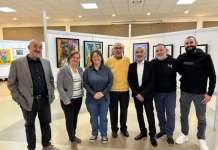Looking to meet him for administrative requirements, I was waiting for my turn in the clinic that I was frequenting for the first time. Just one patient woman was before me. The young doctor came, all smile and friendly, to invite her to follow him to his office. However, when she left it with a broad grin of satisfaction illuminating her face, I did not have the right to the same warm welcome she enjoyed. The young physician, who did not know me, simply called my name while sitting behind his desk, without even doing the slightest effort to go to the door to receive me. The fact that revealed to me that his attentive attitude was not a matter of principle he was respecting with all the clientele, but a “preferential treatment” granted to “his own patients”. Deeply hurt by this attitude that cried the discrimination whatever was the real reason, I headed to his desk, feeling bitter, and handed to him the documents that he, though, properly filled.
Frustrated and furious in front of his behavior and about to leave his office after he had accomplished his task, I could not stop myself, as a human before being a journalist, from expressing my feelings and asking the reason for which he behaved with me this way that could only be described as discriminatory. I was, though, surprised when he leant from his chair to the floor to pick up a cane while telling me that, almost ten years ago, when he was 24 years old, he suffered from an aggressive form of multiple sclerosis (MS), this dangerous chronic autoimmune disease that affects the central nervous system, particularly the brain, the optic nerves and the spinal cord, and manifests by variable symptoms that progress by relapses with different extents causing, over the time, severe and permanent damages seriously harming many of the important body functions. The young doctor added that he would be condemned to spend the rest of his life in a wheelchair if he had not taken the risk of undergoing a critical chemotherapeutic and surgical experimental treatment to halt the evolution of the disease and maybe, with the time, eliminate the damages that it had caused to him during its first attacks.
Thunderstruck by his confidences, which I was far from expecting, a deep feeling of compassion and strong solidarity suddenly flooded me and completely washed all traces of anger and resentment from my heart in front of the humiliation I thought, few moments ago, I was subject to. The journalist in me, however, dominated the situation and was looking for more information and precisions on this unique case representing a treasure for the research on this frightening disease which name freezes the blood in the veins. Especially that the young doctor, actually of 33 years old, strangely seems coping well and there are even great chances that he completely recovers from all the damages that were previously caused to him by the disease.
At that moment, the souvenir of my interviews with the victims of the MS, which I made as part of my various media coverage, painfully passed before my eyes. Their distraught and desperate eyes emerged in my memory, all of a sudden, from the past. While interviewing them, they were perfectly aware that they were condemned for life to a horrifying and merciless prison from which they could not escape. Thus, none of them was optimistic. I even remember a phrase they often repeated: “We do not know in which condition we will wake up the next day!” How many dreams have been shattered on the rock of this horrible inability which spectrum evolves at an unpredictable rhythm that resembles to the electrical current that suddenly cuts from some places to let them sink into darkness and paralyze their activities! It is the horror, even if each of the serious and chronic diseases has its share of misfortunes and heavy burdens.
I was, therefore, full of hope when the Basel-based pharmaceutical giant, Novartis, entrusted me, in 2012, as a certified translator in addition of my work as a journalist, with all the documentation in English, to translate it into French, of their fetish oral medication, Gilenya. After having much seen and read about this disease, I was impatient, while carefully translating the documents, to discover what science might reserve for the condemned of the MS who await the slightest spark that could guide them to a way out of the dark tunnel in which they advance, regardless of the risks and the side effects to incur. For death becomes, in some cases, preferred to live the awful and irreversible degeneration that cause certain aggressive forms of the MS to the motor, sensory and cognitive functions of the human body.
Specially conceived to treat the relapsing multiple sclerosis, Gilenya was, at the time where I was realizing the translation, still in an experimental phase, even if it had been approved by the health ministries of some countries, among them Switzerland, Australia and the United States, as a basic treatment for the relapsing forms of the multiple sclerosis in some patient groups. From a limited use in the beginning, it is presently prescribed all over the world, especially in Europe, for certain categories of adults with highly active relapsing-remitting MS.
However, after the end of my collaboration with Novartis on this level, at the end of 2013, I did not have more information about the MS and its treatments, until March 2016, when I met the young doctor whose story seemed to me a sort of a science fiction scenario. My curiosity piqued to the quick and my interest strongly aroused again about the issue, I wanted to know more from the young practitioner about the way he had surveyed to overcome the aggressive form of the MS that severely attacked him in the threshold of his youth. Reserved by nature and favoring to stay in the shade to avoid being embarrassed, he invited me to know his story from the specialized websites.
By consulting the recommended websites that evoke precisely his case, I was marveled by the discovery that the destiny placed on my path. I read and viewed, with great attention, on the Web all what concerns his state that I put available to the reader without mentioning his name to observe the discretion.
While the young medical student of 24 years old was in his third year at the renowned university, the disease appeared. The young doctor explains later: “I was completely absorbed in my studies that I did not pay attention to its first manifestations.” He first woke up, for few days, having a numb temple, then, his face felt frozen. These symptoms were accompanied by fatigue, as well as balance and coordination of movements problems. “I soon learned that I had a very aggressive form of MS and would probably be in a wheelchair within a year. It was a brutal blow,” he said.
Seeing no other effective alternatives in his case, the young medical student decided to undergo an experimental transplant of stem cells from his own bone marrow at the Ottawa General Hospital, an extremely risky treatment developed in collaboration with doctors at the Montreal Neurological Institute and Hospital (The Neuro). A patient even succumbed to one of its steps, as written in certain websites, not to mention the complications that result. The treatment consists in neutralizing the patient’s immune system with chemotherapy, before rebooting it with the transplant of his own stem cells.
The future doctor became the patient number 19 out of 24 and underwent his transplant successfully by the end of the years 2000, almost a year after the diagnosis of his sickness. Despite some barely noticed after-effects that may be one day fully disappear, the young doctor is recovering well from his critical and fateful treatment giving, that way, the hope to many in his condition around the world that one day they might definitely get rid of this terrifying illness.
Eight years after his tough treatment, the young medical student became a brilliant family doctor benefiting well from his experience in better understanding and serving his patients. He admits in his own words: “It has certainly affected the way I view my patients. I’m more conscious of how I talk to them and more empathetic in dealing with their conditions.”
At this stage of my research on his experience with the disease, so painful and very fruitful in the same time, I realized to what extend I was right, when I first met him, in thinking that he grants “his patients” a “preferential treatment” to which the others clients are not entitled to. Though, contrary to what I thought in the beginning, this particular exclusivity is not for discriminatory reasons, but because of his still limited physical abilities that do not allow him to deploy the same effort with everyone. Thus, he saves, as much as possible, his energy to generously invest it with those who are henceforth bounded to him with an unwavering link that goes far beyond the professional duty and the ethical commitment, to be a real human sharing and a mutual sincere sympathy.
Amal M. Ragheb
(Carmen Aprahamyan)
International journalist and Writer
amragheb2@gmail.com












